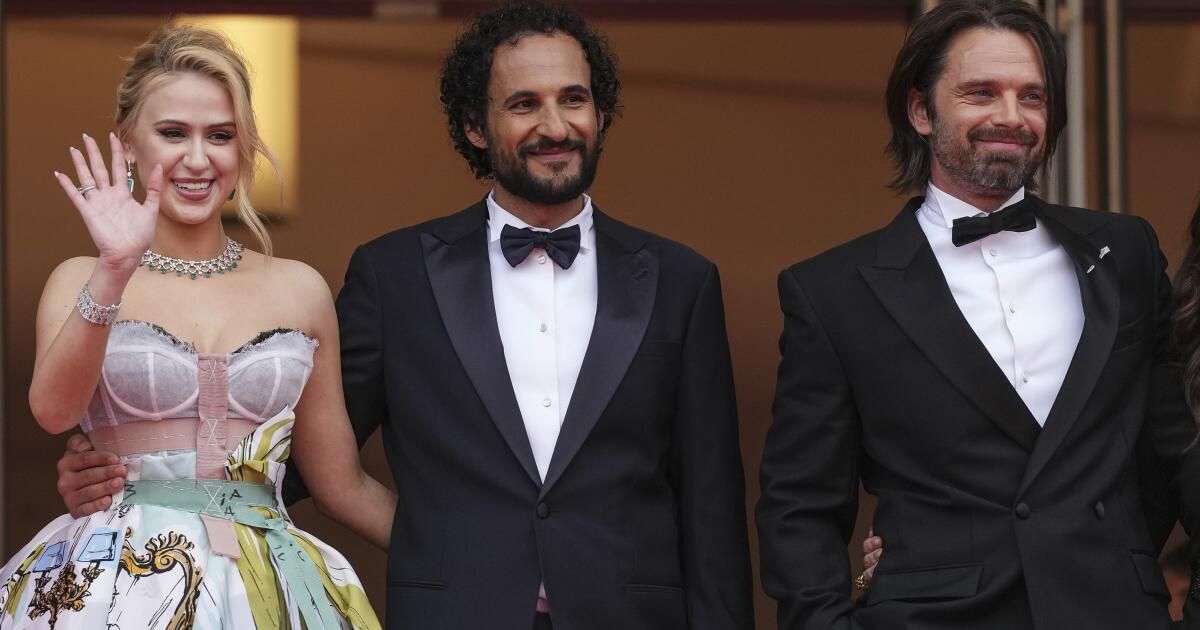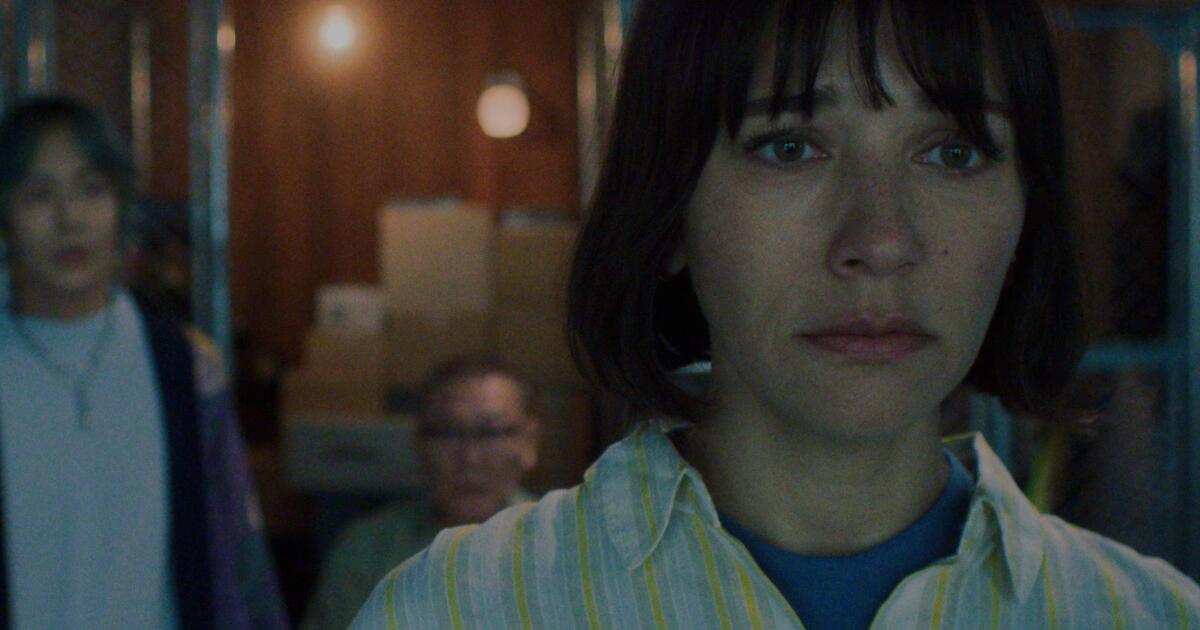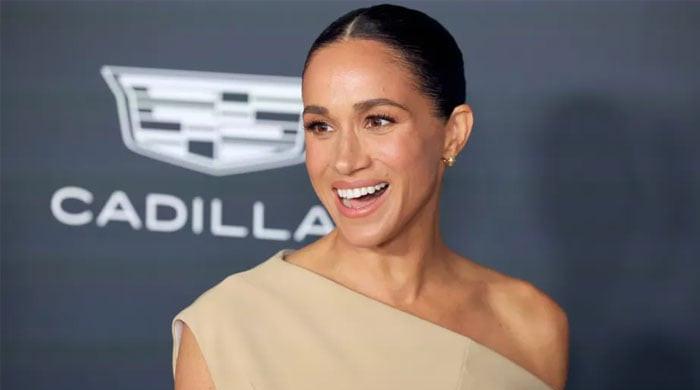“It's time to make movies political again,” director Ali Abbasi said after introducing his Donald Trump biopic “The Apprentice” at the Cannes Film Festival on Monday, quickly getting his wish.
“We will file a lawsuit to address the blatantly false claims of these so-called filmmakers. “This garbage is pure fiction that sensationalizes lies that have long been debunked,” Steven Cheung, communications director for the Trump campaign, said in a statement to the Times. “This 'movie' is pure malicious slander, should not see the light of day, and does not even deserve a place in the straight-to-DVD movie section of a soon-to-close discount movie store.[.] [I]“It belongs in a dumpster fire.”
Abbasi, whose film shows Trump lawyer and mentor Roy Cohn (Jeremy Strong) teaching the young real estate scion (Sebastian Stan) that the first rule of engagement is “attack, attack, attack,” is unfazed.
“Everyone is talking about how he's suing a lot of people,” he said Tuesday at the film's press conference in Cannes, to laughter and applause from many in the room. “However, they don't talk about their success rate.”
“We encourage you to see the film,” added producer Daniel Bekerman. “They clearly haven't done it yet.”
Abbasi went on to offer Trump a private screening and conversation about the film, should he be interested, and even ventured that the 45th president wouldn't dislike the film if he gave it a chance. That seems unlikely, given “The Apprentice”’s depiction of Trump as a venal and cruel social careerist who outed his alcoholic brother shortly before his death and raped his first wife Ivana (Maria Bakalova) in their apartment. penthouse in New York. (The character also undergoes liposuction, undergoes hair loss surgery, and suffers from erectile dysfunction, details practically designed to infuriate the notoriously vainglorious Trump.)
But the Iranian-Danish filmmaker also insisted that Trump is simply the lens through which to view a broader issue.
“This is not really a movie about Donald Trump,” he said, calling the notion of a partisan divide between conservative and liberal elites in the United States “a fantasy.” “This is a movie about a system and the way it works, and the way it is built and the way energy passes through the system.”
Jeremy Strong, left, and Sebastian Stan in the movie “The Apprentice.”
(Cannes Film Festival)
Strong, currently starring in Henrik Ibsen's “An Enemy of the People” in New York, prepared a long, direct statement about the film's politics that Abbasi read from the podium as he opened the news conference.
“'An enemy of the people' is a phrase that Stalin, Mao, Goebbels and more recently Donald Trump have used, when he denounced the free press and called CNN, NBC, ABC, CBS [and the] 'Fake News Media' from the New York Times. We live in a world where the truth is under attack and in the United States that assault on the truth began in many ways. [during] Donald Trump's apprenticeship with Roy Cohn. Cohn was called “an assault specialist” by the National Law Journal and at this dangerous moment in history, we are experiencing the long, dark shadow of Roy Cohn. His legacy of lies, outright denialism, manipulation and blatant disregard for the truth has reached a terrible point. [culmination].”
Written by former journalist Gabe Sherman, “The Apprentice” follows Trump's rise to prominence in the New York of the 1970s and 1980s, where, under Cohn's wing, he develops the ruthlessness that will make him a power broker. and a media favorite. But despite his unwavering vision for the leading couple and the entertainment industry's reputation for progressive politics, Sherman said he failed in his attempts to make the film in Hollywood. (“The Apprentice,” a Canadian, Danish and Irish co-production, has not yet been sold for distribution in the United States.)
“'This movie will never be made. 'Who wants to see a movie about Donald Trump?'” Sherman recalled hearing from executives he met with, including one who expressed interest in taking on the project only if Trump lost the election. “Making a movie like this is a big challenge because Hollywood, in many ways, doesn't want to rock certain boats.”
To prepare to play the young Trump, Stan said he immersed himself in the extraordinary number of interviews the businessman has given over the years, although he tried to “distance himself” from material generated during Trump's time in politics. Instead, he focused on Trump's appearance with Rona Barrett in 1980, which is recreated in the film, along with other audio and video clips. “If he was in the bathroom, I heard him,” Stan said.
Although he humorously addressed questions about the film's influence on the 2024 campaign, calling the election a “promotional event” for the film and suggesting a release date coinciding with one of the presidential debates, Abbasi clearly approached the project with a similar sense of commitment. — In his case, to get directly involved in politics in his work as a filmmaker.
“I feel increasingly frustrated with my colleagues and with myself, because I feel that we are too navel-gazing, too introverted. It feels better to put those distractions aside and say, 'Those wars and political debates come and go and corrupt politicians come and go and they don't concern me.' But they do worry us. and when we [don’t participate] there's a void there, which is filled with Chinese government propaganda films, Iranian government films, the entertainment arm of the Pentagon. And it's complicated. It is not Art with a capital A as I want it, which is my playing field. So now I'm playing on their playing field.
“But I do think it's important for someone to do it. And I hope someone else does too.”












